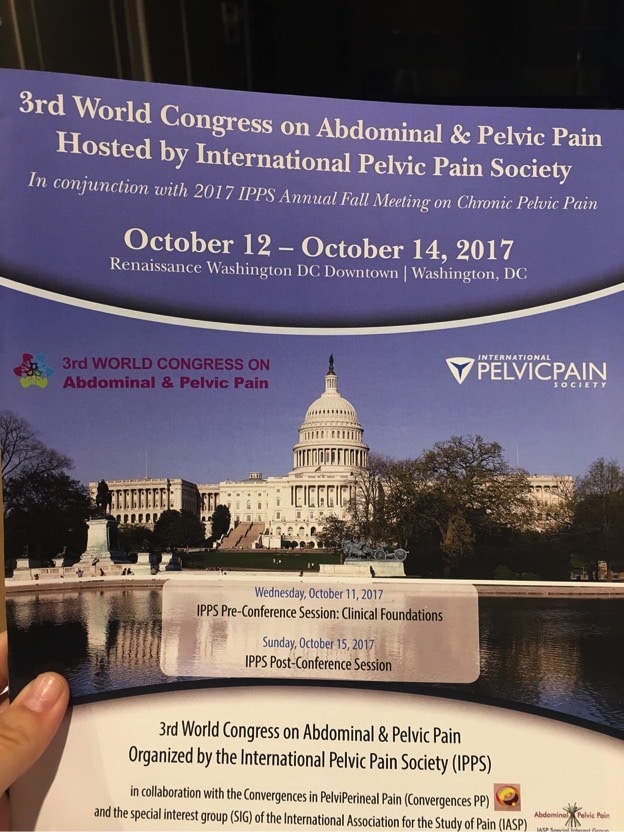Restore Motion physical therapists Carrie Cothran, Patrick Wenning, and Reshma Rathod attended The International Pelvic Pain Society Conference held in Washington DC October 11-15th. When asked to summarize her “take home discovery” from the IPPS Conference, Carrie Cothran replied, “Pain can be viewed as a neuro-immune response. Structures within the body that aren’t injured may still undergo an inflammatory reaction due to the tissue changes associated with pain. This in turn contributes to long-term protective responses that affect resting muscle tension and ability to do work. The protective responses that occur with pain make the body more vulnerable to injury.”
Patrick Wenning remarked, “At the conference, there was such enthusiasm for better understanding scientific knowledge of the pelvic floor. Most of the time, pelvic floor rehabilitation is new to people and to other PTs mainly because it is an area of the body that people don’t want to talk about. Discussion with fellow participants was frank and enlightening. They made me feel that I had something to contribute and that I made the right decision to pursue this specialty. I still have a lot to learn as the science continues to uncover more useful information!”
Reshma Rathod added, “Opioids don’t work with Fibromyalgia or chronic pain since the endogenous opioid receptors are already occupied due to changes associated with chronic pain. When opioids are given for acute pain, they interfere with mood, sleep patterns and contribute to headaches. Ironically, patients may want to continue on the opioid medication to address their depression, difficulty sleeping and headaches. The body’s dependence opioid medications ‘stick’ with the person making it more difficult to discontinue and cause more problems in the long run.”

